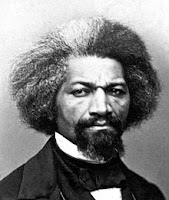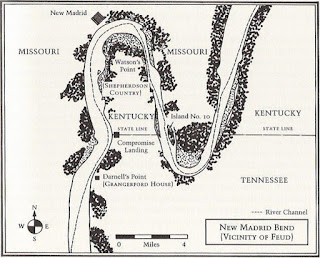 |
| "When you know what you're getting before you start reading, you get what you read while you are seeing," Dr. Seuss was never heard saying. |
I also acknowledge that stating a disdain for thesis statements is dangerous because I am also a language arts teacher. We're supposed to love English language absolutes like: never end a sentence in a prepositional phrase, never use colloquialisms in formal writing, avoid cliches like the plague, and every paragraph should have five sentences; I hate all those as well. Maybe that's why I never get a "permanent" teaching position.
Anyway, the thing about thesis statements that is so elementary is the pure idiocy it requires of the reader--telling them beforehand what you are going to do. Like foreshadowing without the creativity. Like a magician wanting you to figure out his trick; "watch as I take the card you choose and slip it into my sleeve...I will try and distract you with some slight of hand movement away from the card going up my sleeve...but pay no attention..." A magician would never give his or her secrets away, so why do we writers have to announce what we are going to argue in the first paragraph.
 |
| Preach it Fredrick! |
What, to the American slave, is your 4th of July? I answer; a day that reveals to him, more than all other days in the year, the gross injustice and cruelty to which he is the constant victim. To him, your celebration is a sham; your boasted liberty, an unholy license; your national greatness, swelling vanity; your sounds of rejoicing are empty and heartless; your denunciation of tyrants, brass fronted impudence; your shouts of liberty and equality, hollow mockery; your prayers and hymns, your sermons and thanksgivings, with all your religious parade and solemnity, are, to Him, mere bombast, fraud, deception, impiety, and hypocrisy-a thin veil to cover up crimes which would disgrace a nation of savages. There is not a nation on the earth guilty of practices more shocking and bloody than are the people of the United States, at this very hour.Do audiences and readers of today not have the kind of attention spans and comprehension skills to read beyond the first paragraph to decide whether the writer is saying anything of merit? Do we NEED a thesis statement (and is it needed in the first paragraph) as so many of our school teachers taught us?
My answer? No. Actually, I take that back. A good writer has no obligation to tell you what he is doing. A good writer has a bag of tricks. Hyperbole, a nasty Hook, Humor...those are just a few that I use that start with the letter H. Eventually, you will know what my point is, but I will get there my own special way...stop expecting it the way you always received it. (please recognize that I only lumped myself into the "good" writer category...not great, or legendary).
 |
| I love the Grangerford/Shepherdson fued: Mimicking the absurdity of the Hatfield/McCoy brouhaha. |
That's all a good writer has to do. Connect with his/her audience with valid points. That's my contract with you the reader. I won't use this blog to talk about dinner recipes, or my hatred of gardening, or my annoying dog unless I can connect them to something of significance in your life. Yes, I write about my life, but hopefully in a way that connects to other people's lives. But if you need a thesis statement about my next topic? Might want to find yourself an About.com article instead. Those articles are always so helpful and soulless.
I guess it's a good thing that I consider myself a horrible writer because I don't think I follow any of the rules you laid out. Have a point? I try at least. haha. I often wish people would accomplish that much just while I speak to them. Ever pay attention to how many people just don't have a point?
ReplyDeleteThank you for that piercing and brilliant quote from Fredrick Douglas' speech.
ReplyDeletehaha Right on! I, too, hate thesis statements and hated teaching my kids to write them knowing full-well that they don't necessarily need to.
ReplyDeleteTrue. There isn't really any type of writing in the real world that needs a thesis. Topic sentences, yes, but could you image an email starting "much of our day is spent stapling, for the sake of ease, the red swingline stapler is vastly superior to the Boston stapler we recently switched to".
Deleteoh Chris, your brain..."Hyperbole, a nasty Hook, Humor...those are just a few that I use that start with the letter H." Dad and I had a great laugh over this.
ReplyDelete